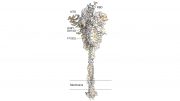
Researchers have pioneered a novel approach to quantum memory design, advancing the development of quantum computers.
Researchers from Dartmouth College and the University of Sydney are helping move quantum computing closer to reality, demonstrating a technique for storing quantum states with high fidelity for exceptionally long times.
Researchers at the University of Sydney and Dartmouth College have developed a new way to design quantum memory, bringing quantum computers a step closer to reality. The results appear in the journal Nature Communications.
Quantum computing may revolutionize information processing, by providing a means to solve problems too complex for traditional computers, with applications in code breaking, materials science, and physics. But figuring out how to engineer such a machine, including vital subsystems like quantum memory, remains elusive.
In the worldwide drive to build a useful quantum computer, the simple-sounding task of effectively preserving quantum information in a quantum memory is a major challenge. The same physics that makes quantum computers potentially powerful also makes them likely to experience errors, even when quantum information is just being stored idly in memory. Keeping quantum information “alive” for long periods, while remaining accessible to the computer, is a key problem.
The Sydney-Dartmouth team’s results demonstrate a path to what is considered a holy grail in the research community: storing quantum states with high fidelity for exceptionally long times, even hours according to their calculations. Today, most quantum states survive for tiny fractions of a second.
“Our new approach allows us to simultaneously achieve very low error rates and very long storage times,” said co-senior author Dr. Michael J. Biercuk, director of the Quantum Control Laboratory in the University of Sydney’s School of Physics and ARC Center for Engineered Quantum Systems. “But our work also addresses a vital practical issue – providing small access latencies, enabling on-demand retrieval with only a short time lag to extract stored information.”
The team’s new method is based on techniques to build in error resilience at the level of the quantum memory hardware, said Dartmouth Physics Professor Lorenza Viola, a co-senior author who is leading the quantum control theory effort and the Quantum Information Initiative at Dartmouth.
“We’ve now developed the quantum ‘firmware’ appropriate to control a practically useful quantum memory,” added Biercuk. “But vitally, we’ve shown that with our approach a user may guarantee that error never grows beyond a certain level even after very long times, so long as certain constraints are met. The conditions we establish for the memory to function as advertised then inform system engineers how they can construct an efficient and effective quantum memory. Our method even incorporates a wide variety of realistic experimental imperfections.”
The study was supported by the U.S. Army Research Office, National Science Foundation, Intelligence Advanced Research Projects Activity, and ARC Center for Engineered Quantum Systems.
Reference: “Designing a practical high-fidelity long-time quantum memory” by Kaveh Khodjasteh, Jarrah Sastrawan, David Hayes, Todd J. Green, Michael J. Biercuk and Lorenza Viola, 19 June 2013, Nature Communications.
DOI: 10.1038/ncomms3045









I read last year that research was moving forward in the same field but via the utilisation of Positrons and Electrons. What’s changed in terms of application?
what are the implications for quantum computing? infinite amount of storage?
what affects would it have on processor power? artifical intelligence?
or maybe im getting ahead of myself!
HI
It’s really an awesome and mind blowing thought to solve the too multifaceted problems that aroused for traditional computers. We are looking for those quantum computers to log on as early as possible.
Good research………
Keep it up.